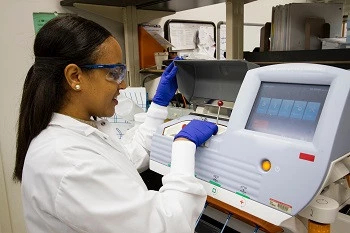Keeping tabs on pharma: Workplace culture identified as biggest barrier for women in life sciences and FDA extends J&J’s Covid-19 vaccine shelf-life
A nonprofit calls for life sciences organizations to redress the gender equality balance and J&J announce FDA approval of shelf-life extension for Covid-19 vaccine
Add bookmark
Survey findings show workplace culture in life sciences to be the biggest barrier for women in STEM
A survey conducted by The Pistoia Alliance found almost half of life science professionals see workplace culture as the biggest barrier for women entering into science, technology, engineering and mathematics (STEM) careers. The results also highlighted 15 per cent have acknowledged there to be an absence of female roles in the life sciences workplace.
In response to the survey findings, Pistoia Alliance, a global nonprofit that advocates for greater collaboration in life sciences research and development (R&D) innovation, is exploring new ways to support diversity, equity and inclusion for women in STEM.
Dr Becky Upton, Chief Portfolio Officer at The Pistoia Alliance, said: “We want to help embolden women in STEM careers, facilitate networking and enable current female STEM leaders to hold open the door for the next generation of scientists.”
The Harvard Business Review conducted a study in 2017, that diverse teams are able to solve problems faster than teams of cognitively similar people, while Deloitte found that helping women progress their careers and build their networks is vital for retaining talent in the life sciences and healthcare industries.
Upton commented: “While great strides towards equality for women in STEM have been made in the last decade, Covid-19 has threatened to slow this progress. Evidence shows the impact of the pandemic falls more heavily on women in pharma. Our survey found more than 68 per cent of respondents believe women in STEM have been more disadvantaged during the pandemic than their male counterparts.”
Analysis from McKinsey has echoed Upton’s commentary on how Covid-19 has impacted women, highlighting that women’s jobs are 1.8 times more vulnerable to the pandemic than men’s jobs as the pandemic has significantly increasing the burden of unpaid care, which is disproportionately carried out by women.
“There is a risk that progress could go into reverse if steps to redress the gender equality balance are not taken now. As we return to “normal life” following the pandemic, we must make sure that development in diversity is maintained and that it continues to be a business priority,” Upton added.
FDA approves shelf-life extension for J&J’s Covid-19 vaccine
The US Food and Drug Administration (FDA) has authorized an extension for the shelf life of Johnson & Johnson’s (J&J) single-shot Covid-19 vaccine from three months to four and a half months. The news comes as millions of unused doses in the US near expiration.
What was anticipated to be a fast-paced roll out of J&J’s Covid-19 vaccine in the US, in reality crawled its way to the market, after US regulators were forced to assess the safety of the single-shot vaccine following a manufacturing error in J&J’s Baltimore plant. Reuters reported, that the slow roll out left more than 10 million doses sitting unused in warehouses.
J&J released a statement that said: “The FDA’s decision has been based on data from ongoing stability assessment studies, which have demonstrated that the vaccine is stable at four and a half months when refrigerated at temperatures of 2°C to 8°C.”
Dr Joseph Kanter, State Health Officer for the Louisiana Department of Health, told the Los Angeles Times: “This is really welcome news as Louisiana has 14,000 J&J doses that will expire this month. I think at the end of the day this encourages the industry to have less waste.”
J&J are continuing to work with global health authorities to support the use of the vaccine for those who wishes to be fully vaccinated with one shot.
For more insights on the latest Covid-19 vaccine research, Sandra Lawrynowicz Leibel, Assistant Professor of Pediatrics at UCSD explores how to carry out therapeutic testing for Covid-19 using human lung cells in this webinar. Sign up to watch on demand.


























